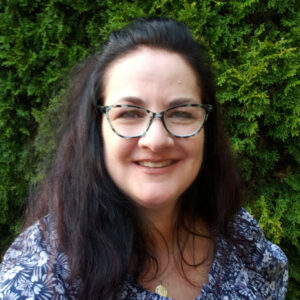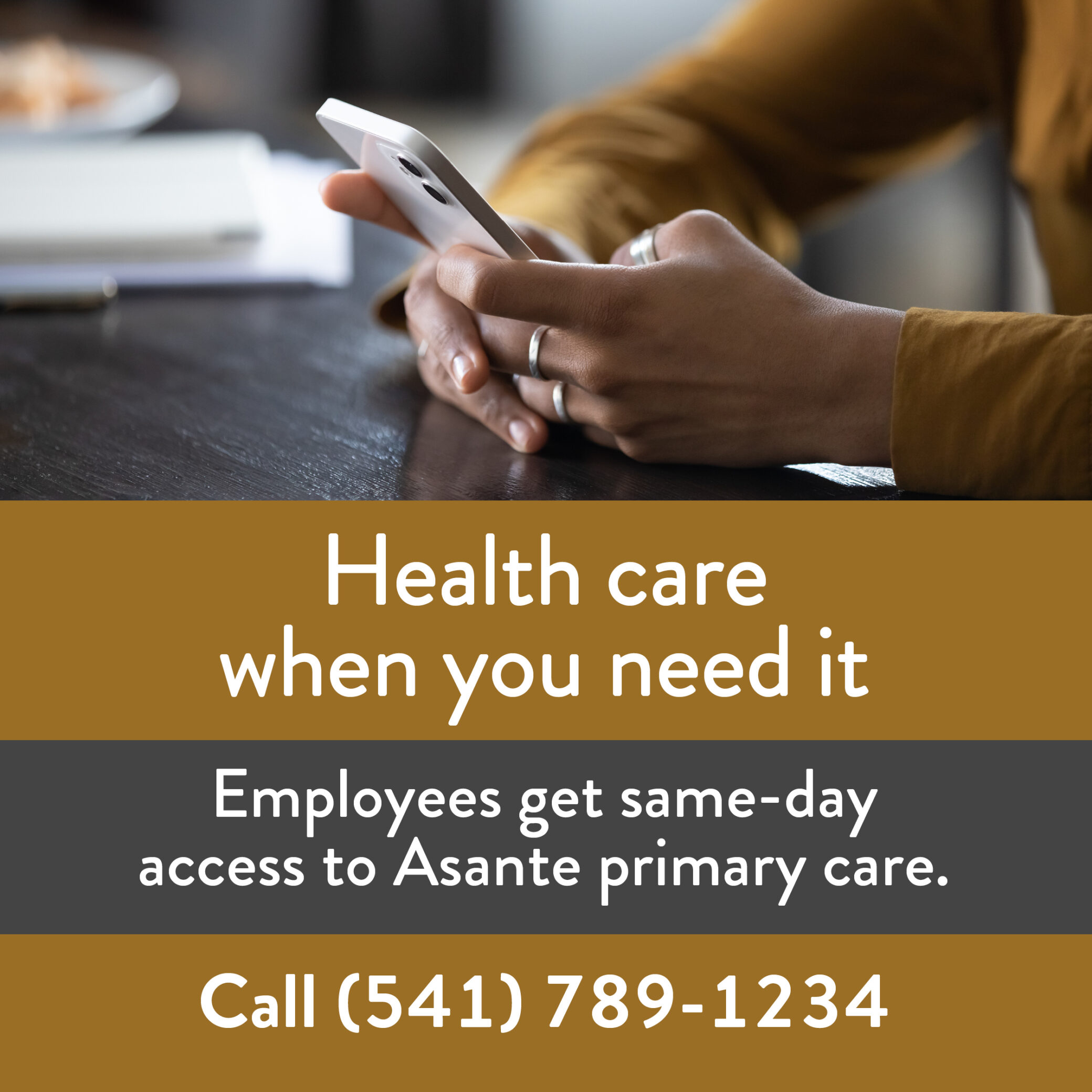Share:
Compassionate life care eases patients’ way

As everyone working in health care knows, providing great patient care involves much more than medical treatment. In fact, medical care may be moot if the patient lacks the transportation to get to an appointment. Or if they can’t afford nourishing food. Or their living conditions exacerbate their chronic condition.
Asante Physician Partners knows these circumstances all too well, which is why it has created a network of support for patients at a higher risk of illness and hospitalization.
Using a model born out of the medical home movement of the past 15 years, APP has adopted team-based care for these patients. Teams may include outpatient nurse care managers (APP employs eight of them), community resource coordinators (six in total), pharmacists, social workers and behavioral health consultants. Some are embedded in primary care clinics, others work out of the Contact Center.
Their role is to help remove the obstacles to health care — and to help the patient live a fuller life.

Michele O’Hara was a registered nurse who spent 19 years at the bedside in ARRMC’s Heart Center. She loved the education part of that job, so when an APP care manager position opened in 2021, she took it. This role allows her to develop close relationships with the people she serves, some 54 right now.
It’s through those relationships that the hidden barriers to care are revealed. She may learn, perhaps, that a patient who is medically ambivalent (a neutral alternative to the term “noncompliant”), has a fear of procedures that has stopped them from scheduling a GI appointment ordered months earlier. Or that debilitating anxiety prevents another patient from making their medical appointment.
In those cases, O’Hara gently intervenes. She may call the gastroenterologist’s office to make the appointment for the patient. Or meet an anxious patient at their car and walk them into the clinic.
She is both confidante and, in a way, medical interpreter.
“Patients can be scared when they get information, and just because they’re told something in moment doesn’t mean they hear it.”
O’Hara will use her role as an educator to help the patient or understand a test or a diagnosis. “If I can educate a person to the point where they can talk about their [health challenges], I can help them be more proactive.”
If a patient refuses to go to the hospital, she may learn they are worried about the costs of an ambulance.

This is where resource coordinators like Robin Stoller come in. Stoller, who works out of the Black Oak and State Street clinics, helps patients benefit from the many community assistance programs available to those who need help.
This may come in the form of applying for financial assistance, Social Security Disability or Medicaid. She has helped patients fill out forms for Section 8 housing and connected them with transportation to ensure they can make their appointments.
Research has found that this patient-centered approach to care can reduce hospital and emergency department visits, lessen health disparities and improve patient outcomes.
“What’s going on at home is a huge part of a person’s health,” Stoller says. “If they lack transportation, they can’t make appointments. If they don’t have the finances to pay a utility bill, if they don’t have heat, they can end up in the emergency room.”
Stoller’s work also includes helping patients, some of whom may have dementia or literacy barriers, with basic lifestyle support.
She’s found home for pets, dropped off bus tokens, bought sleeping bags, helped with online grocery orders, gotten gym memberships, arranged for new dentures and picked up and delivered cellphones through a Medicaid/Jackson Care Connect program.
“It’s helping connect them to community resources they aren’t even aware of.”
This work is far removed from Stoller’s first career as an HR manager for a large law firm and later as supervisor for the former Asante Diabetes and Nutrition Services. But it fits her passion to help, explained when she earned an Annual VIA Award in 2018.
Both Stoller and O’Hara say their efforts may take time, and that patients’ circumstances don’t change overnight. But when patients are ready, both will be there for them.
As Stoller says, “We don’t give up on people.”
Patient-centered care teams
APP’s care teams work with patients’ primary care providers to improve outcomes.
Behavioral health consultants provide emotional and practical support for life issues.
Care managers (registered nurses) work with patients and families to develop plans for the patient’s overall health.
Community resource coordinators help patients find the help they need for life issues.
Clinic nurses help patients with chronic conditions or recent hospitalization get the follow-up care they need.
Pharmacists help patients understand and manage their medications.

Is your team ready for its spotlight?
If your team or department has done something extraordinary, submit your story and photos to Asante News.
Questions? Email
as********@as****.org
.
If you have a question, please contact the author or relevant department directly.




2 Comments. Leave new
I love this so much. Isn’t this why we’re here? Not just to help people, but to give extra help to the extra needy.
Now we just need more doctors who are taking new patients. My mother is currently being dismissed from her NP at One Peak because her medical needs are outside their scope of practice. However, I have called around to several different health systems locally, and no one is accepting new patients. So now this elderly person with complicated health problems is without a provider.